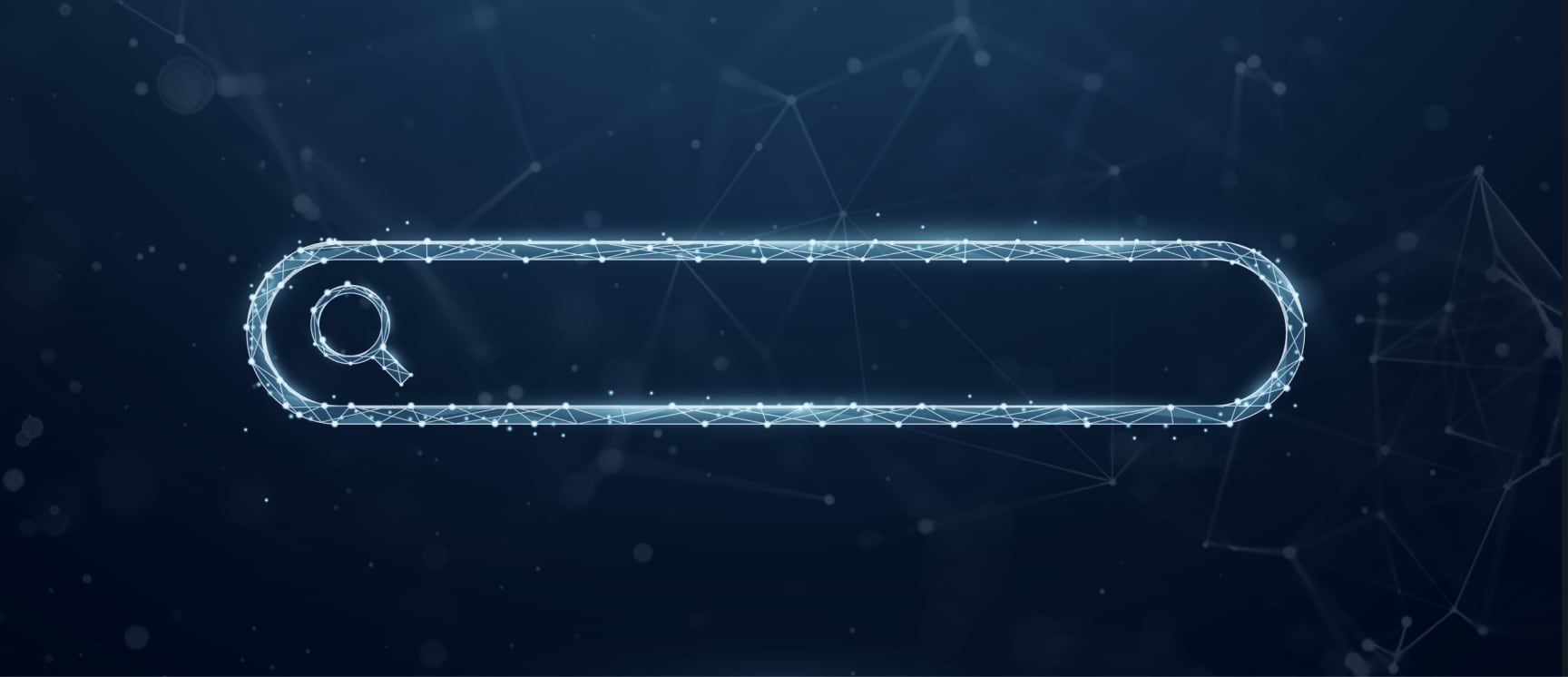How to Automate Supply Chain Risk Reports: A Guide for Developers
Do you use Python? If so, this guide will help you automate supply chain risk reports using AI Chat GPT and our News API.

Unlike the surface web, which is indexed by mainstream search engines like Google and Bing, the dark web remains largely out of sight, only accessible using specialized tools and browsers. This hidden realm attracts legitimate users, such as journalists and whistleblowers. However, it also appeals to those with more nefarious intentions, like cybercriminals and fraudsters.
Navigating the dark web is daunting due to its complexity and ever-changing websites — this is where dark web search engines come into play. These search engines are specifically designed to index and catalog the myriads of websites on the dark web, making it easier for users to find the content they are looking for there.
This article provides a current list of the top dark web search engines in 2024. Whether you’re a cybersecurity professional, researcher, or simply curious about the dark web, this article will help you navigate this hidden internet space.
The internet is often considered a vast, open space where information is freely available through search engines like Google, Bing, and Yahoo. However, this surface web only represents a small fraction of the internet. Beneath it lies the deep web, which includes content not indexed by traditional search engines. Within the deep web exists an even more concealed layer known as the dark web.
The deep web consists of anything online not indexed by standard search engines, such as personal email accounts, online banking, private databases, and subscription-only content. While the deep web is hidden from public view, it is not inherently malicious and is used daily by individuals and organizations to protect sensitive information.
On the other hand, the dark web is a subset of the deep web that requires special software to access. The most common method to access the dark web is through the Tor network, which uses the Tor Browser. Tor, short for “The Onion Router,” anonymizes users’ internet activities by routing their connections through a series of volunteer-operated servers around the world. This process masks users’ identities and locations, providing high privacy and security.
While the dark web is often associated with illegal activities, it also serves legitimate purposes. For example:
Additionally, lawful individuals who value their privacy use the dark web to protect their personal information from surveillance and data breaches.
Despite its legitimate uses, the dark web has earned its reputation due to the illicit activities it hosts. It is a hub for black markets where criminals trade illegal goods and services, such as drugs, weapons, counterfeit currency, and stolen data. Many cybercriminals use the dark web to buy and sell hacking tools, exploit kits, and malware. Forums dedicated to illegal activities, including human trafficking and terrorism, also exist in this hidden part of the internet.
Navigating the dark web is challenging due to its decentralized and constantly changing nature. Websites frequently change their URLs to evade detection and shutdowns, making it difficult to find reliable and up-to-date information. The lack of standardization and numerous malicious sites further complicate navigation.
Dark web search engines help mitigate these challenges by indexing and cataloging dark websites, making it easier for users to locate the information they need. They provide a crucial service by organizing the chaotic and often dangerous landscape of hidden websites.
In the following sections, we will explore the top dark web search engines in 2024, offering insights into their features, capabilities, strengths, and limitations.
Dark web search engines are essential tools for navigating the complex landscape of the dark web. However, not all search engines are created equal. Here are the key criteria to consider when evaluating a dark web search engine:
● Range of Content: The ability to index various types of content, including dark web marketplaces and forums, is crucial. A good search engine should provide access to a wide range of sites where users can find relevant information.
● Breadth of Index: The number of indexed pages and sites is a significant factor. Search engines with a more substantial index are more likely to provide comprehensive search results.
● Ease of Use: The search engine should have a user-friendly interface that is easy to navigate, even for those who are not tech-savvy. This includes a clear search bar, intuitive navigation, and helpful search suggestions.
● Advanced Search Options: Features like advanced search filters, keyword suggestions, and the ability to sort results by relevance or date can enhance the user experience.
● Performance: A good dark web search engine should deliver quick and efficient search results. Slow response times can hinder the search experience and make it difficult to find timely information.
● Reliability: Consistent performance without frequent downtimes or errors is essential for a reliable search experience.
● Anonymity: The search engine should prioritize user anonymity and not track or log user activities. This is especially important on the dark web, where privacy concerns are paramount.
● Security Measures: The search engine should employ robust security measures to protect users from malicious sites and ensure the safety of their data.
● Content Moderation: Effective search engines should have mechanisms to filter out illegal or harmful content. This helps protect users from inadvertently accessing dangerous sites.
● Material Policies: Clear policies against hosting or indexing abusive or exploitative material are essential for maintaining a safer dark web environment.
● User Feedback: Some search engines allow users to submit feedback or report issues. A responsive support system and active community engagement can significantly enhance the reliability and usability of a search engine.
● Documentation and Help Resources: Comprehensive guides, FAQs, and support documentation can assist users in navigating the search engine and troubleshooting common issues.
● Linked Directories: Integration with directories that list popular or verified dark web sites can be helpful as they provide users with curated lists of safe and relevant links.
● Cross-Network Search Capabilities: Some search engines also support searching on other dark web networks, such as I2P (Invisible Internet Project), expanding the scope of available content.
For a quick comparison, here is a table summarizing the key features of the top dark web search engines:
| Ahmia | Hoodle | Tor66 | |
| Index Marketplaces | Yes | Yes | Yes |
| Index Forums | Yes | Yes | Yes |
| Login Blocked Content | No | No | No |
| Paywall Blocked Content | No | No | No |
| Indexed Pages (Estimate) | 6M | 392K | 12K |
| Response Time (Seconds) | 3 | 3 | 2.5 |
| Granular Filtering | No | No | No |
| Linked Directory | No | No | No |
| I2P Search Engine | Yes | No | No |
Based on the criteria outlined above, here are the top dark web search engines in 2024.
Ahmia is among the most well-known and widely used dark web search engines. It serves as a bridge between the surface web and the dark web, providing a user-friendly interface and a range of features designed to help users navigate the hidden parts of the internet safely and effectively. Here’s a closer look at what makes Ahmia stand out among dark web search engines:
Strengths:
● High Level of Security and Privacy: Ahmia does not track user activity or store logs, which aligns with the privacy-centric ethos of the dark web. This ensures that users can search anonymously without fear of their data being compromised.
● Accessibility: Its availability on both the dark web and surface web allows users to access it through regular web browsers, making it more versatile.
● Ethical Stance: By filtering out abusive content, Ahmia distinguishes itself from other dark web search engines that do not implement such measures, promoting a safer browsing experience.
Limitations:
● Limited Search Results: Despite its comprehensive indexing, Ahmia may not cover as many sites as other dark web search engines like Haystak, which boasts a larger index. This can sometimes limit the scope of search results.
● Occasional Downtime: As with many dark web services, Ahmia can experience periods of downtime or slower performance due to the inherent instability of dark web networks.
Hoodle is a versatile, user-friendly dark web search engine known for its extensive indexing and continuous database growth. It offers a straightforward interface and a range of features, making it an appealing choice for users seeking to explore the dark web. Here’s an in-depth look at Hoodle and what it brings to the table:
Strengths:
● Continuous Database Growth: Hoodle’s automated crawler and user submissions ensure a continually expanding and up-to-date index, making it a reliable source for current dark web content.
● User-Friendly Design: The simple interface makes it easy for users to navigate and perform searches, regardless of their level of experience with the dark web.
● Privacy Focus: Hoodle’s commitment to not tracking user activities enhances its appeal to privacy-conscious users.
Limitations:
● Advertisements: The inclusion of ads and sponsored listings can sometimes clutter the search results and potentially mislead users. It’s important to differentiate between genuine search results and paid placements.
● Limited Advanced Features: While Hoodle provides robust basic search functionality, it lacks some of the advanced features and filtering options found in other search engines, such as granular search filters or historical data access.
Tor66 is a versatile and user-friendly dark web search engine that aims to provide comprehensive access to a wide range of dark web content. Known for its efficient indexing and unique features, Tor66 stands out as a valuable tool for users seeking to explore the dark web. Here’s an in-depth look at what makes Tor66 a prominent choice among dark web search engines:
Strengths:
● Crowdsourced Indexing: The ability for users to anonymously submit new URLs helps Tor66 maintain a dynamic and extensive index, covering a broad array of dark websites.
● Categorized Sorting: The option to sort results by categories such as top, newest, and language-specific sites gives users more control and helps streamline the search process.
● Popularity-Based Results: Sorting results by popularity ensures that users can quickly find the most accessed and reputable sites, improving the overall search experience.
Limitations:
● Advertisements: The inclusion of paid advertisements and sponsored listings can sometimes clutter search results and may lead users to less relevant or potentially harmful sites.
● Limited Advanced Features: While Tor66 offers a robust basic search functionality, it lacks some of the advanced features found in other search engines, such as granular filtering and historical data access.
Better Access to the Dark Web
Dark web search engines have advanced significantly over the years. However, they can only provide a glimpse into the websites and information that lies deep beneath the surface web. To access the full breadth of content and data available on the dark web, you need more advanced tools than search engines. We provide two advanced tools for accessing and monitoring the deep and dark web: the Webz.io Dark Web API and Lunar.
Our Dark Web API crawls the deep and dark web, providing structured feeds of illicit content kept locked away with encryption and password protection. With our API, you can access millions of dark web websites, including marketplaces and forums. Lunar is our deep and dark web monitoring tool. It helps you track and investigate threats in near real time — from infected devices and ransomware indications to compromised domains and leaked credit card information.
Specialized search engines can help you find sites on the dark web, but they can’t help you monitor and identify early indicators of potential cyber threats from those sites. Get in touch with one of our experts to learn more about how our tools can help you gain better access and insights from sites and content far beneath the surface web.
Historical list of the top dark web search engines in 2023.
Haystak is a dark web search platform specifically crafted for the Tor network. It catalogs about 1.5 billion pages, encompassing over 260,000 websites, making it a resourceful engine. Haystak also provides a premium edition, a kind of VIP area with additional functionalities, including the ability to conduct searches using regular expressions, explore previously inactive Onion sites, and utilize their API.
Kilos is often used to discover and access dark web marketplaces, where you can find illegal drug trading. While some search engines avoid the more shady side of the dark web, Kilos embraces it, by refraining from filtering search outcomes. This strategy has elevated Kilos to the status of a leading black market search engine. However, it also underscores its role as a gateway to an illegal and dangerous realm of the internet.
Recon was developed by Hugbunt3r, a prominent figure within the well-known dark web platform, Dread. Its purpose is to function as a repository enabling users to explore items from various sellers across diverse marketplaces on the dark web. Users can also view individual profiles of vendors and marketplaces, providing information such as ratings, alternate links, the number of listings, and the percentage of uptime.
Z-Library is the globe’s most extensive illegal library, which claims to provide access to over 11 million ebooks. The library has been operational since 2009, providing ebook files in various file formats without their copyright protections. The Z-Library functions as an intricate network of hundreds of interconnected web domains and is available through TOR and I2P platforms.
Historical list of the top dark web search engines in 2022.
According to the Subdread, a section on the dark web forum Dread, Deep Search was created a year ago by a young group of students.
The search engine enables registration, which allows registered users to request the site to add new onion sites they would like to be indexed. It also allows members to send feedback on the site.
Although the admins stated in the past that they don’t accept advertising as most of them are scams, we have since been able to see advertising on the site.
The OnionLand offers a simple user interface that includes search suggestions. Users can look for old V2 onion addresses, images, and content on I2P. On the site, users can search for the most popular terms on the dark web. Another feature the site offers is their directories. The site also has a hosting platform – which allows users to set up new onion sites.
Phobos has a very simple user interface that only includes a search bar. This makes it very easy to use. It is also the fastest one out of all the search engines we cover in this post.
Very little is known about the people behind Phobos and their motivation behind establishing this site as there is neither an About Us nor Contact Us page. We did, however, discover that the creator of this search engine had a user on Reddit, where he publicized the site a few times. When asked about his long-term plans for the site, he said that he will keep the site because it’s “cheap to maintain and interesting to improve.”
Visitor is a dark web search engine and a directory of onion (Tor network) sites. It offers both a search option and lists by topics: all sites, best sites, and site by categories. The site also offers users the ability to anonymously submit new URLs. Visitor also flags sites they consider as “evil” (no definition was given to this type of content) and removes them from the search results.
The search engine mission is “to create tools for those looking for onion sites and for onion sites to be found.” The site started under the previously mentioned Ahmia search engine. But today, it has expanded to lists and directories. The manager of the site is working alone and set it up as a hobby. He has already announced his plans to expand the site further. At the moment, the site is working on creating a new directory.
Historical list of the top dark web search engines in 2021.
As its name suggests, Candle brings light to the dark web with simple search queries. With 100,000 web pages of search results that include coverage of the deep web and darknet marketplaces and forums, it is a very popular search engine used by cybercriminals.
Pros:
Cons:

Do you use Python? If so, this guide will help you automate supply chain risk reports using AI Chat GPT and our News API.

Use this guide to learn how to easily automate supply chain risk reports with Chat GPT and news data.

A quick guide for developers to automate mergers and acquisitions reports with Python and AI. Learn to fetch data, analyze content, and generate reports automatically.